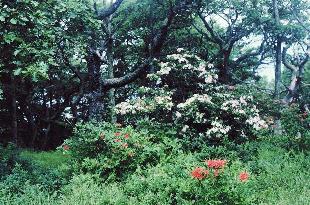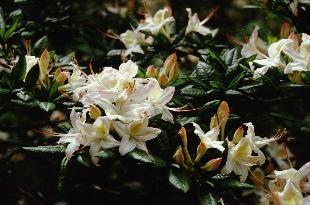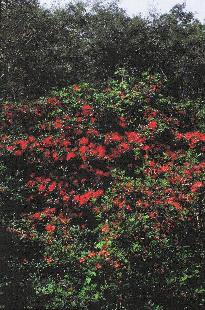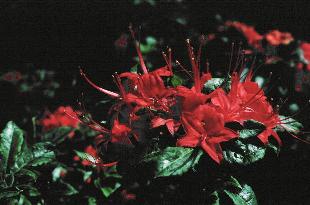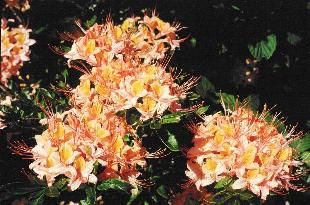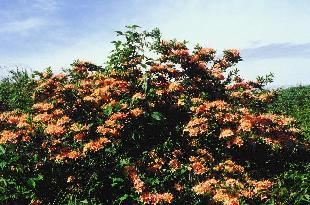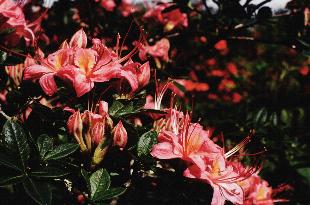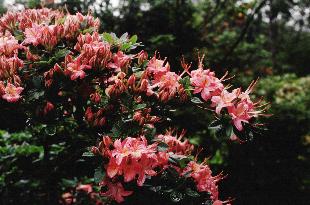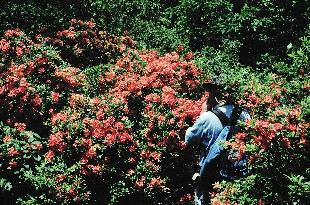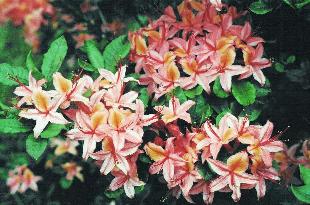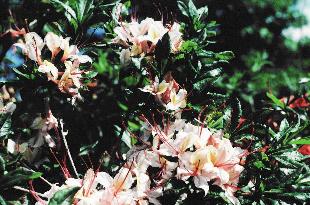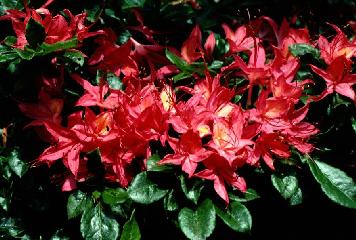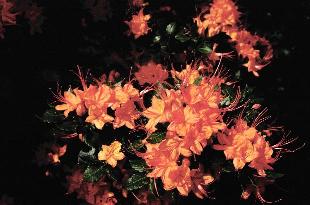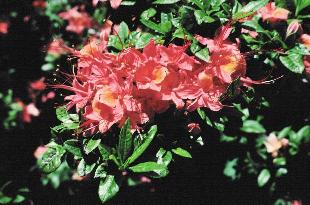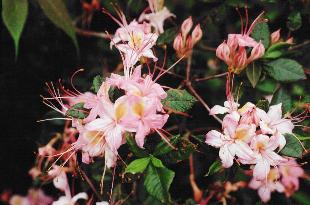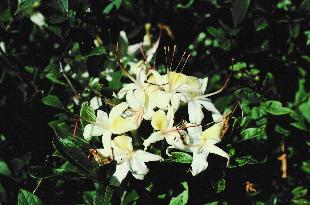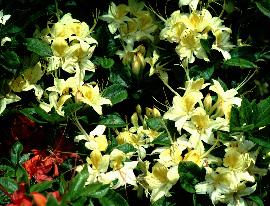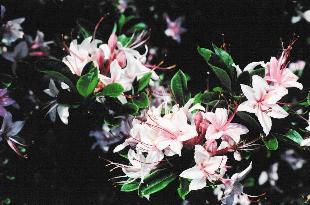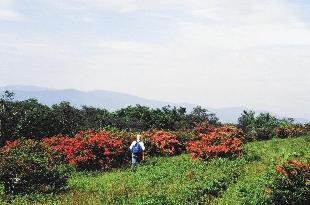 The native azalea hybrids on the top of Gregory Bald in the Great
Smokey Mountains put on a magnificent display in late June. This
natural garden was at one time crossed by the Appalacian Trail, but
quite a few years ago the trail was rerouted in that area, so now it
is a side trip. Entering from Cade's Cove, there are two trails to
Gregory: the recently reopened Parson's Branch access via Hannah Trail
which is a moderate hike, and the longer approach via Forge Creek which
is more beautiful, but a bit more difficult. The author has written an
article published in the Journal of the American
Rhododendron Society about his experiences hiking to Gregory via the
Forge Creek Trail. The web version has more pictures but
carries the same title:
Return to Gregory Bald.
The native azalea hybrids on the top of Gregory Bald in the Great
Smokey Mountains put on a magnificent display in late June. This
natural garden was at one time crossed by the Appalacian Trail, but
quite a few years ago the trail was rerouted in that area, so now it
is a side trip. Entering from Cade's Cove, there are two trails to
Gregory: the recently reopened Parson's Branch access via Hannah Trail
which is a moderate hike, and the longer approach via Forge Creek which
is more beautiful, but a bit more difficult. The author has written an
article published in the Journal of the American
Rhododendron Society about his experiences hiking to Gregory via the
Forge Creek Trail. The web version has more pictures but
carries the same title:
Return to Gregory Bald.
The diversity in flower color seen among azaleas on Gregory is considered
to be the result of a natural hybrid swarm of at least four
native species including
R. arborescens,
R. viscosum,
R. cumberlandense, and
R. calendulaceum. Almost every color associated with modern
Knap Hill and Exbury hybrids can be seen there including white,
through blush pink to rose, to yellow, orange, salmon, coral, red,
and fuchsia.
It is interesting to note that when
R. arborescens and calendulaceum are the only two species present,
such as on Wayah Bald or other spots in the Smokies,
there seems to be little hybridization. This is probably due to some
genetic incompatibilities because
arborescens is diploid having the normal number of
chromosomes, but
calendulaceum is tetraploid having twice the number.
Any hybrids that might result would likely be
triploid and thus sterile.
It is speculated that
when another diploid species
such as cumberlandense or viscosum is introduced,
the first generation hybrids of the diploids are fertile, but they
also produce unreduced
gametes in their pollen which then can now cross with calendulaceum
producing fertile progeny. Actual chromosome studies would be
required to support this hypothesis, though.
In most hybrid swarms involving R. calendulaceum, at least three
azalea species seem to be involved.
The following images were taken by the author on Gregory Bald, and the
reference names used by members of the species study group of the
Middle Atlantic Chapter of the American Rhododendron Society are included.
Other naturalists who frequent Gregory will
likely have their own pet names for these clones, but we will all recognize
these spectacular plants in one another's photographs.
Please do not disturb these
very special azaleas that have evolved on this mountain top. They are
a natural treasure that needs to be preserved.
|

